In the picturesque wine regions of Porto, Douro, and Vinhos Verdes, the concept of “mile zero” has taken root, transforming the culinary landscape and enhancing the wine tourism experience. This approach focuses on using locally sourced ingredients, minimizing waste, and promoting sustainable practices that honor the region’s natural bounty. From wine estates cultivating their own gardens to restaurants embracing the principles of circular economy, these regions offer a fresh perspective on how wine and food can be intertwined with the land.
Embracing Sustainability in the Douro Valley
The Douro Valley, known for its dramatic terraced vineyards and world-class wines, is also home to a growing number of wine estates that are committed to sustainability and local sourcing. Quinta do Vallado, one of the oldest estates in the Douro, exemplifies this approach. Reflecting a commitment to environmentally conscious viticulture, the estate converted its vegetable gardens to organic production in 2015. The estate’s organic garden provides fresh, seasonal produce for its kitchen, ensuring that the ingredients used in its meals have minimal environmental impact. Quinta do Vallado’s restaurant is celebrated for its farm-to-table dining experience, where dishes are crafted using ingredients harvested just meters away, paired with their great wines, offering guests distinctive enogastronomic experiences.
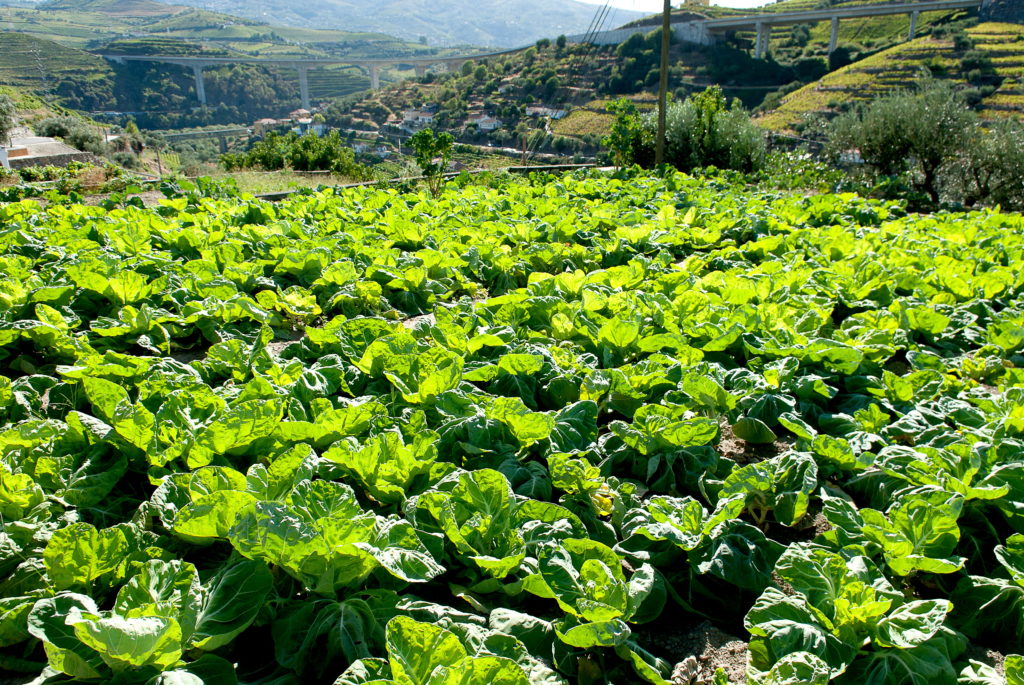 © Quinta do Vallado
© Quinta do Vallado
Not very far, Quinta do Bomfim also champions the “mile zero” concept. The estate’s restaurant, Bomfim 1896, uses ingredients grown in its own vegetable garden or sourced from nearby farms. The menu reflects the Douro’s rich agricultural heritage, with a modern twist that delights both the palate and the conscience. Additionally, the estate practices sustainable viticulture, ensuring that their wine production is as environmentally friendly as possible.
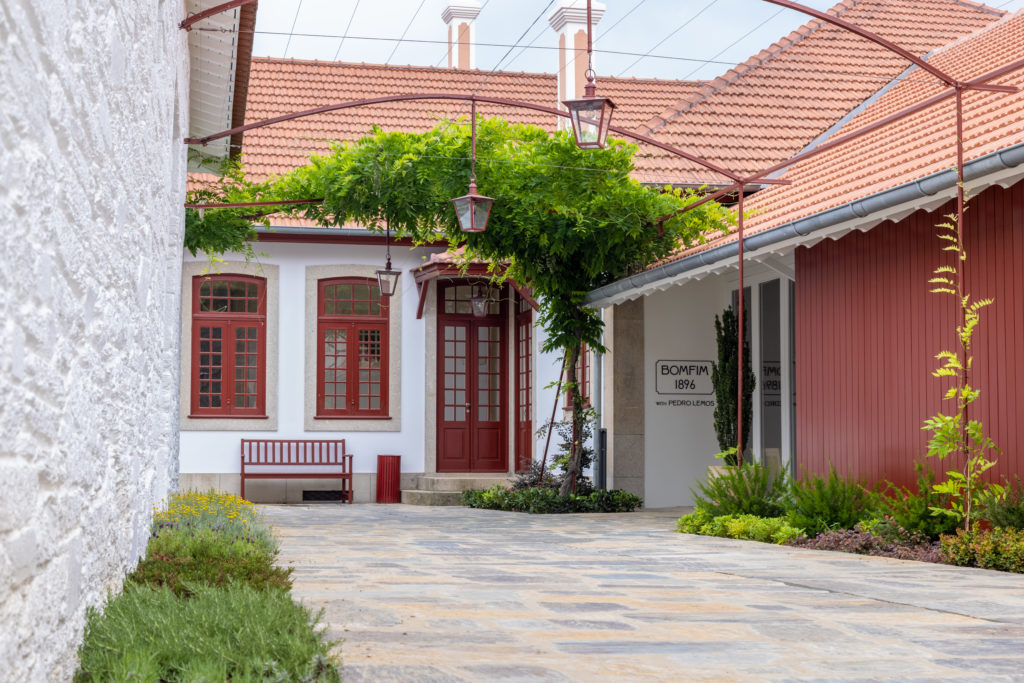 © Bomfim 1896 with Pedro Lemos
© Bomfim 1896 with Pedro Lemos
Another notable example is Quinta Nova de Nossa Senhora do Carmo, which not only produces award-winning wines but also embraces sustainable practices in its cuisine. The estate’s restaurant sources the majority of its ingredients from its own organic gardens and the surrounding Douro region, crafting a menu that reflects the seasons and the local terroir. Their commitment to sustainability extends to waste reduction, with a focus on using every part of the produce, ensuring nothing goes to waste.
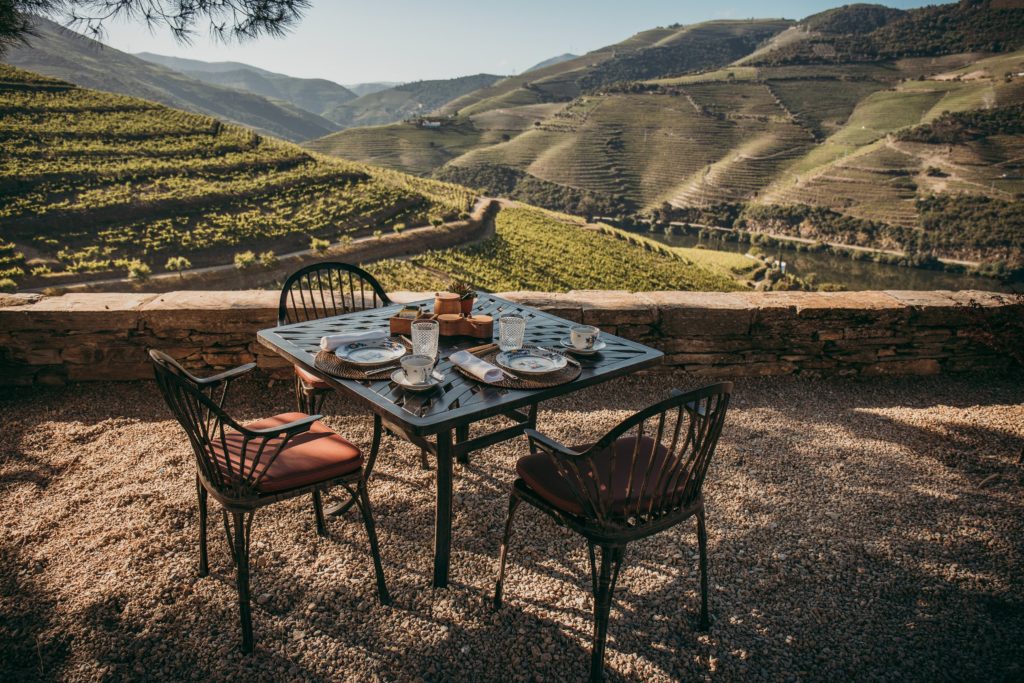 © Quinta Nova de Nossa Senhora do Carmo
© Quinta Nova de Nossa Senhora do Carmo
A region rooted in tradition and innovation
In the Vinhos Verdes region, where the lush landscape produces some of Portugal’s most refreshing wines, sustainability and local sourcing are equally important. Quinta da Aveleda, a historic estate in the heart of the region, has long been committed to the principles of sustainability. The estate’s gardens provide herbs, fruits, and vegetables for their culinary offerings, while their vineyards are managed with an emphasis on biodiversity and environmental stewardship. Visitors can enjoy a tasting menu that pairs Vinhos Verdes with dishes made from ingredients that reflect the local terroir, offering a true taste of the region. In a more interactive way, visitors can also participate in workshops that reflect many sustainability and circular economy practices.
 © Quinta da Aveleda
© Quinta da Aveleda
Another standout is Monverde Wine Experience Hotel, which not only offers luxurious accommodations but also emphasizes the importance of local and sustainable dining. The hotel’s restaurant sources ingredients from its own organic garden and nearby farms, crafting a menu that is both innovative and deeply rooted in the region’s culinary traditions. Monverde’s commitment to the “mile zero” philosophy is evident in every dish, where the flavors of the Vinhos Verdes region are celebrated in their purest form.
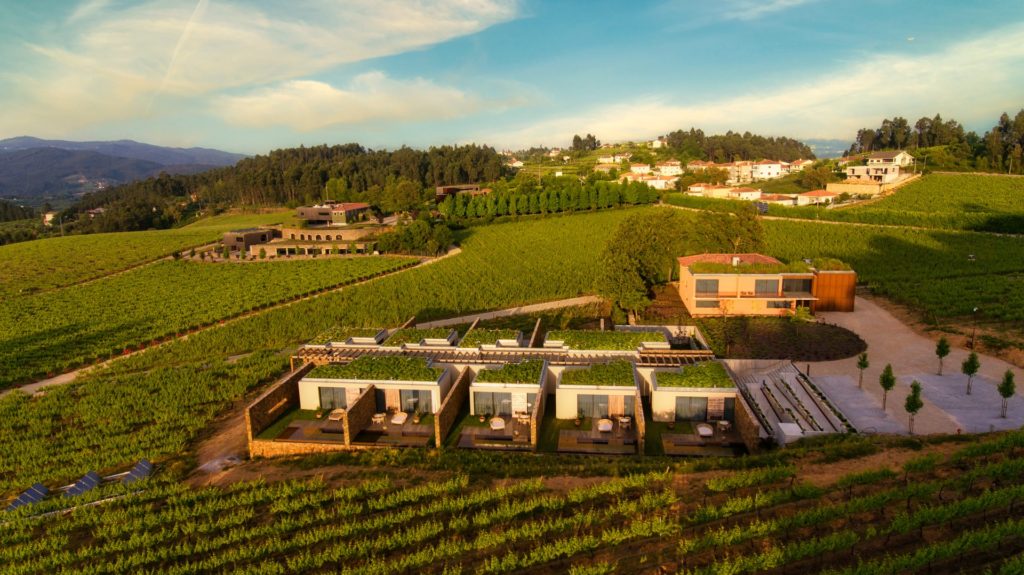 © Monverde Wine Experience Hotel
© Monverde Wine Experience Hotel
Porto is now a hub of circular economy and local delights
In Porto, the urban landscape is increasingly dotted with restaurants that are adopting the mile zero philosophy. Euskalduna Studio, a Michelin-starred restaurant, is a pioneer in the city’s sustainable dining scene. The restaurant sources nearly all of its ingredients from within a 50-kilometer radius, supporting local farmers, fishermen, and artisans. Chef Vasco Coelho Santos has crafted a menu that changes with the seasons, highlighting the best local produce and reducing the carbon footprint associated with transportation. Here you can find a truly conscious and unique experience.
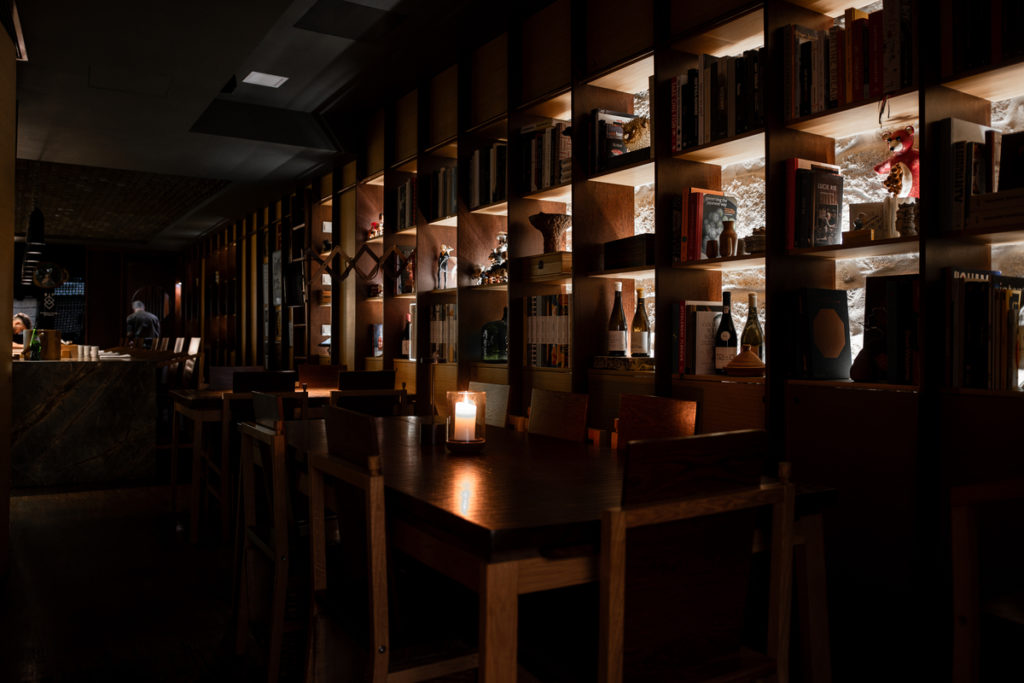 © Euskalduna Studio
© Euskalduna Studio
The future of wine and food in Northern Portugal
As the regions of Porto, Douro, and Vinhos Verdes continue to gain recognition on the global stage, the focus on sustainability, local sourcing, and waste reduction is becoming increasingly central to their identity. Wineries, restaurants, and wine tourism services are not just offering exceptional products and experiences—they are also playing a crucial role in preserving the environment and supporting local communities.
For visitors, this means the opportunity to enjoy meals that are not only delicious but also environmentally conscious, knowing that each bite supports a broader vision of sustainability.
Photo credits: Quinta do Vallado (including the main photo); Quinta do Bomfim; Quinta Nova de Nossa Senhora do Carmo; Quinta da Aveleda; Monverde Wine Experience Hotel; Euskalduna Studio.
Learn more about Porto – Great Wine Capital